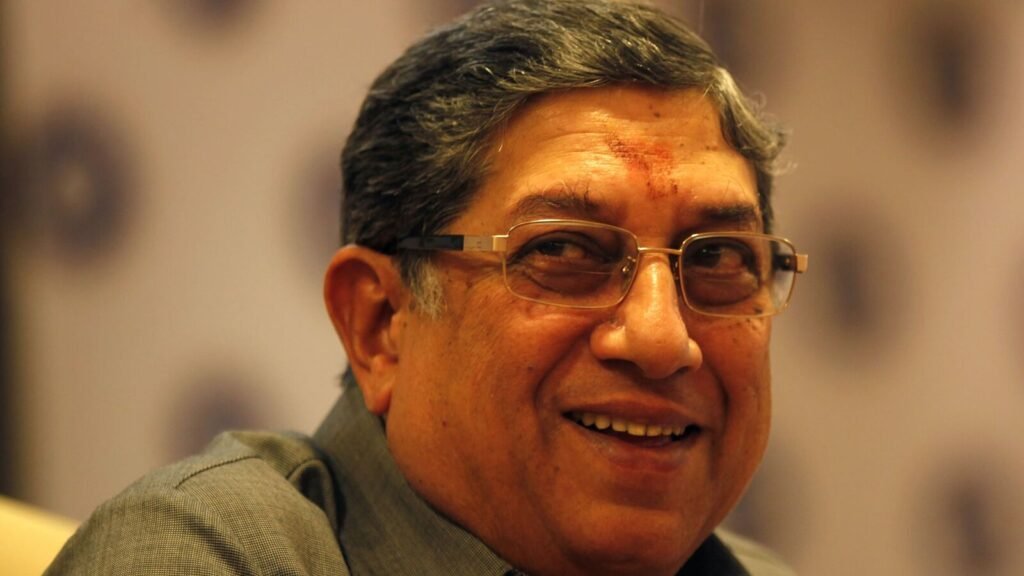India Cements promoters increase share pledge as company finds itself in a tight spot

Promoters led by managing director N. Srinivasan had 45.5% of their shares pledged with banks at the end of December 2023, as against 16.8% at the end of September 2022. The latest share pledge data is yet to be updated on the bourses.
EWS Finance and Investment, which owns three-fourths of the 28.42% promoter stake in the company, said on 15 March that the promoter had raised more money by creating new pledges. Mint could not independently ascertain the quantum of the new share pledges, or the money raised.
In an analyst call on 1 February, the India Cements management said that several company assets remained idle in the December quarter thanks to working capital shortages, curtailing production. Meanwhile, balance sheets remain stretched, with debt six times its operating profit.
To tide over the crisis, India Cements is also looking to sell some non-core assets including land parcels to bring down debt and pump working capital into the company. The working capital woes have primarily been caused by the price competition after Adani’s entry into the sector, experts said.
“Since the recent entry of a large conglomerate into the cement market, there has been a strong push towards capacity consolidation in the industry,” said Snehdeep Bohra, director, Fitch Ratings. “There has been intense price competition in the market over the past 18 months, leading to margin erosion.”
Prices of cement in the south Indian market, for instance, have declined 11% between March 2022 and March 2024 to around ₹375 per bag, as per a recent report by ICICI Securities. This, even as input costs in terms of energy saw an uptick during this period.
In May 2022, Adani spent $10.5 billion to buy Ambuja Cements Ltd and ACC Ltd from Switzerland’s Holcim, becoming the country’s second-largest cement manufacturer, behind Aditya Birla’s Ultratech. After completing the buyout in September, the Ahmedabad-headquartered conglomerate exited the Cement Manufacturers’ Association, which was followed by rising price competition in the sector.
This hurt the profitability of smaller cement manufacturers like India Cements, which faced a double whammy of lower prices for cement they made and a fall in volumes hurting their unit economics. India Cements has an installed capacity of 15.5 million tonnes per annum (mtpa) versus 143.8 mtpa of market leader UltraTech, and over 70 mtpa of the Ambuja-ACC combine under the Adani Group.
“The selling price of cement was lower during the quarter under review due to severe competition caused by supply overhang,” India Cements told investors in a press release dated 7 August last year.
“Our volume was low because of working capital constraints, we could not sell, for example, we had planned 11 lakh tonnes. (But) we did less than 7 lakh tonnes,” Srinivasan told analysts in a post-earnings call on 1 February this year. “Going forward, we have made arrangements for the working capital. We have sold smaller portions of land which is of no use for us and the performance of the company has been much better and leading to an expectation that next quarter onwards, we will shine like before.”
To be sure, it is unclear if promoters infused the debt raised against pledged shares to mitigate working capital concerns.
Srinivasan told analysts that India Cements had hired Boston Consulting Group (BCG) to suggest ways to improve the way it conducts business. The company’s efficiency continues to lag its larger peers. As per data shared by Fisdom, its operating cost per tonne of ₹6,116 during the December quarter was significantly higher than an average of ₹4,624 of larger peers.
The company is looking to raise ₹250 crore to improve its liquidity situation. Its total debt is expected to be ₹3,300 crore at the end of 31 March 2024, as against ₹3,426 crore last year, according to Care Ratings.
India Cements’ Ebitda for every tonne of cement produced totalled just ₹241 for the December quarter, as per Mint’s calculations. This compares to over ₹1,100 for the large cement makers like UltraTech and Ambuja, as per Fisdom data.
Ebitda or earnings before interest, tax, depreciation and amortisation for a tonne of cement produced is an important metric to ascertain the financial health of cement manufacturers.
India Cements did not respond to Mint’s queries.
“The subdued operating performance of (India Cements) stems from the significantly higher power and fuel requirement compared to the industry average and also continued loss in market share in the southern region over the years,” Care Ratings noted last month as it downgraded the company’s long-term credit rating to BB+ with a negative outlook from BBB- earlier. The company was rated A- with a stable outlook in FY21 by Care Ratings.
The rating agency “believes that owing to the weak operating performance of the company, the net debt to EBITDA will remain stretched and over 6x in FY24 and FY25 unless management resorts to deleveraging by equity infusion or significant sale proceeds from non-core assets as guided earlier,” as per its rating report last month.
Shares of India Cements are down 7.3% between 1 September 2022 and 28 March 2024, a period when shares of ACC and Ambuja Cements and UltraTech were up 8.4%, 47.5% and 48%, respectively.
